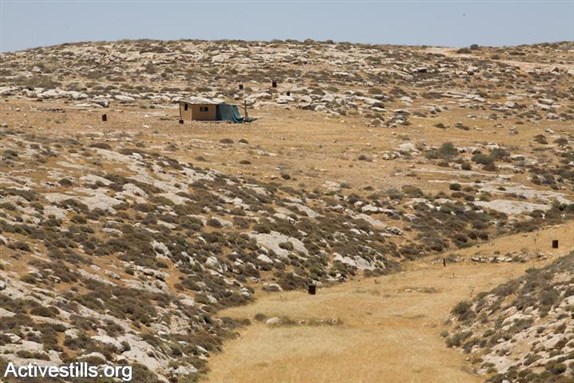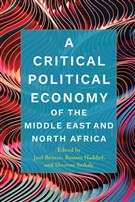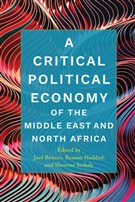Let’s say that you have a plot of land in Germany, and you don’t work it. Someone else does. You don’t pay attention because you aren’t using it. Then you return and claim the land. When the German legal authorities look into it they will say it is no longer your land. It belongs to the one who worked the land for ten years.
This is how Yochanan, a resident of the unauthorized “outpost” of Mitzpe Ya’ir explains why he has the right to put a fence in the middle of an agricultural field owned by Faysal Sa‘id Hushiyya and his relatives in the hardscrabble, semi-desert South Hebron Hills near the southeastern edge of the West Bank (or Masafir Yatta, as the area is known in Arabic). There is only one problem with Yochanan’s argument. Not a word of it is true.
Before Mitzpeh Ya’ir was established in 1998, the Hushiyya clan owned and farmed the entire barely arable valley between the outpost and the “authorized” settlement of Susya (pop. ca. 750) established in 1983. In November 1999 the Israeli army closed off a large tract of land in the South Hebron Hills, dubbed “Firing Area 718,” and announced it would be used for military target practice. The army and Civil Administration authorities expelled most of the Palestinian inhabitants, among them about 1,000 cave dwellers. Their property was confiscated; the caves were sealed; their water wells and outhouses were destroyed.
For nearly a decade, Israeli activists organized by Ta‘ayush (Living Together) and internationals have worked with the inhabitants of the South Hebron Hills to maintain their precarious hold on their lands based on sheep and goat herding, unirrigated winter agriculture, and sparse olive groves. The presence of Israelis and internationals has sometimes also provided some degree of protection from the arbitrary orders of the army. Christian Peace Maker Teams and Italians from Operation Dove have maintained a constant presence in the village of Tuwani, which has been subjected to the depredations of settler fanatics who have poisoned their flocks and attacked children from neighboring villages on the way to school. Throughout the area, settlers have frequently uprooted olive saplings planted by Palestinians with the help of Ta‘ayush and stoned or shot at farmers attempting to work their lands.
The Israeli Supreme Court ruled that since some of the settler outposts were built in “Firing Area 718” this proved that the army did not really need the area as a target range. The court ordered the army to allow the Palestinians to return. Despite many obstacles, the area has gradually been repopulated. However, the Palestinians have not been given permission to construct any buildings. A school and a medical clinic built in the village of Tuwani have been issued demolition orders. Despite another court order directing the army to permit the Palestinians to carry out their agricultural work, the army often obstructs them from plowing and harvesting their fields.
The army prevented Faysal Sa‘id Hushiyya and his partners from plowing their fields for five years during which Mitzpe Ya’ir flourished despite its “unauthorized” status according to Israeli law. The Hushiyyas have filed a claim in an Israeli court to establish their ownership rights. But the case has dragged on for years. Enter Yochanan of Mitzpe Ya’ir.
Israeli law requires a property owner who claims that someone has infringed on his property rights by building a structure on it, must, within thirty days, assert his rights by attempting to remove the structure. Otherwise, the interloper’s claim is considered valid. On Christmas Day 2010 some twenty Israelis and internationals organized by Ta‘ayush come to witness and provide assistance and protection as five members of the Hushiyya family attempt to dismantle the fence built by Yochanan on their lands.
Two dozen soldiers and two policemen have beaten us to the scene. They have already taken the ID cards of the Hushiyyas, although they are not charged with any crime or security violation. Nor has the army directly ordered them not to dismantle the fence. But since they must have their ID cards to do anything, the Hushiyyas are afraid that if they go ahead with their plan, the army will invent some offense and detain them.
Jamal Hushiyya addresses the commanding officer on the scene saying, “Isn’t Israel a state of law? We are only asking that you apply the law.” All present know very well that in the West Bank there is a different law for Jews and Arabs, to the extent that any legal norms applied at all to limit the hooliganism of the settlers. The standoff ends when the Ta‘ayush legal staff informs us that documenting the Hushiyyas’ attempt to assert their rights satisfies the requirements of Israeli law. Some of us are not very confident that the Israeli courts will affirm the property rights of the Hushiyyas any time soon.
And Yochanan? He is a German convert to Judaism relying on the power of the Israeli army to assert that his right to the land he has confiscated supersedes the rights of the Hushiyyas who were there for hundreds of years before him. Another wrinkle – according to a report by Nissim Mosek for Israeli Television Channel 1, a very high percentage of the Palestinians living in the South Hebron Hills are of Jewish origins. Until two generations ago this was widely known and acknowledged. Many, especially in town of Yatta, maintain crypto-Jewish ritual practices to this day.






